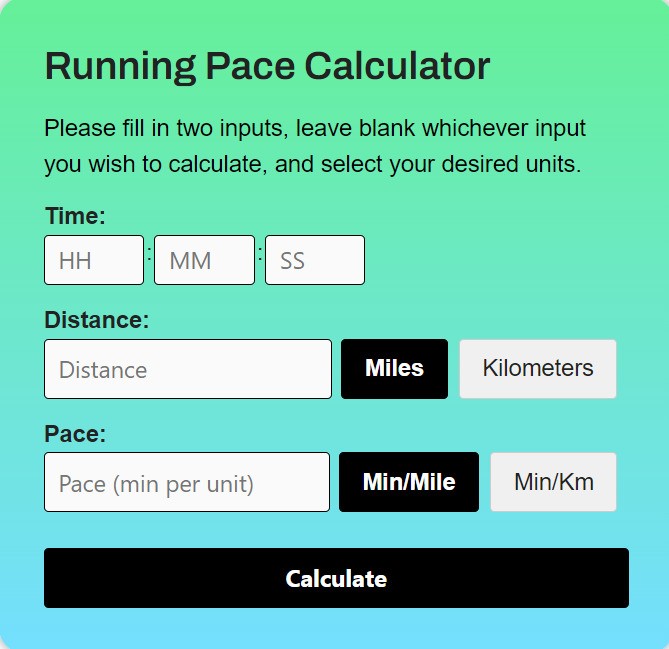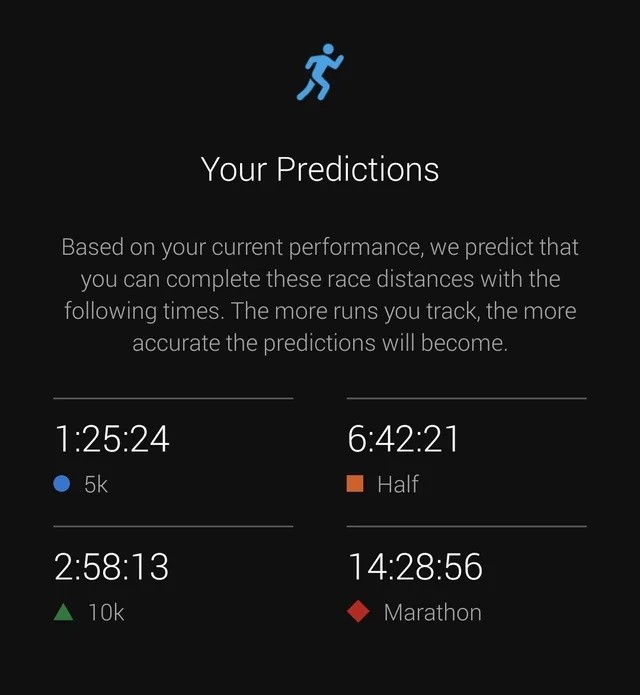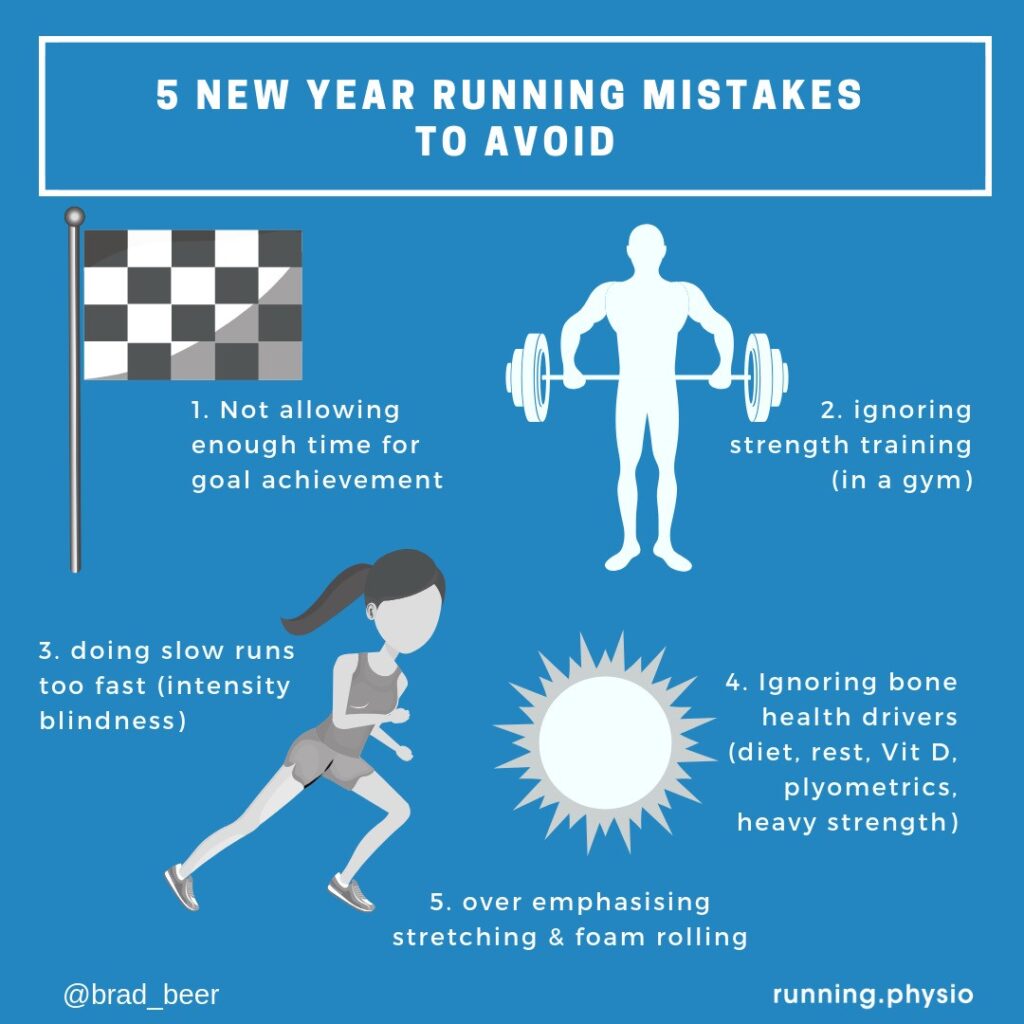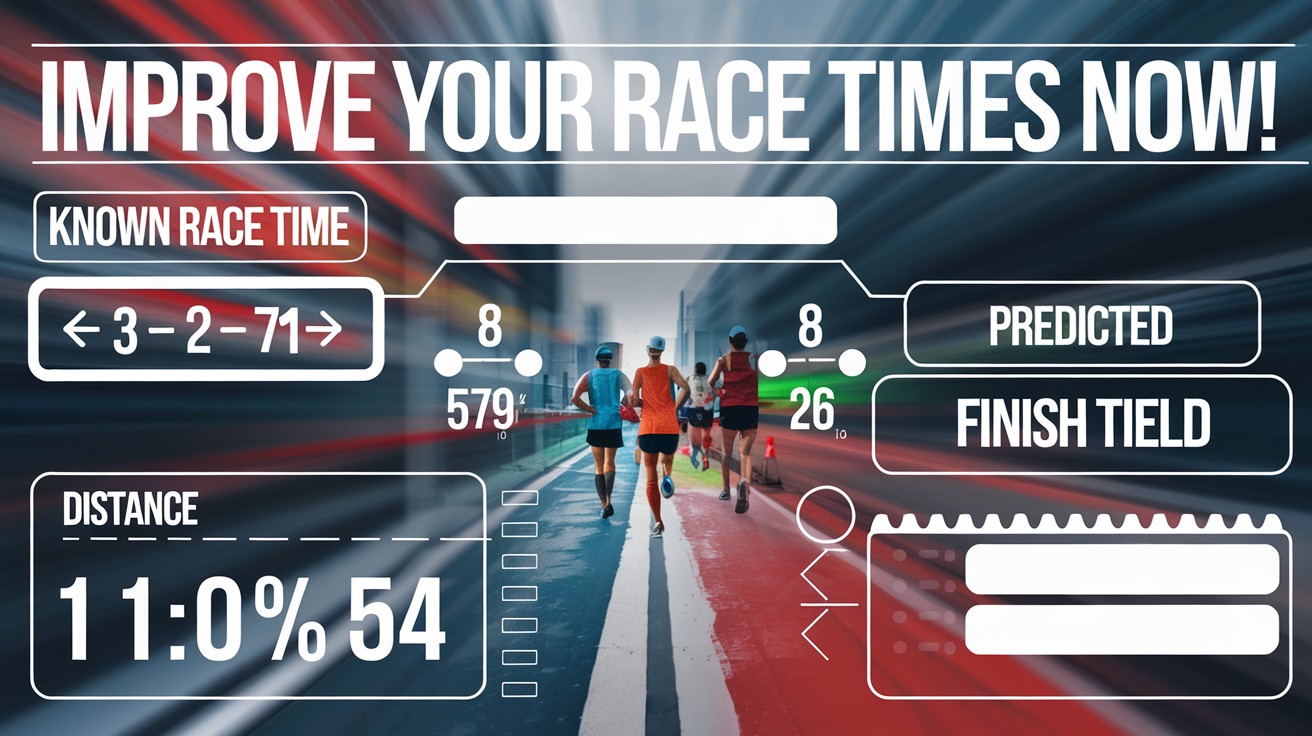Race Equivalency Calculator – Improve Your Race Times Now!
After using the race equivalency calculator, I was amazed at how accurately it predicted my marathon time based on my 10K performance. It helped me set a realistic goal and tailor my training for better results.
A race equivalency calculator will predict your race times for various distances given past race results. Enter a known race time and the calculator will predict your finish time in longer events. It’s a good tool to set some goals and to train around them.
Stay with us and delve into the world of a race equivalency calculator. We shall show you how this strong tool can be helpful for predicting your race times, creating achievable goals, and strengthening your training strategy. Don’t miss this!
What is a Race Equivalency Calculator – Find Out How It Works!
A race equivalency calculator is something a runner uses to gauge how he or she would do in a different race distance based on a race in which they have a known result. So, if you’ve ever run a 5K, you might want to know how fast you could run a 10K or a marathon. This calculator gives you some predictions based on proven formulas.
To achieve this, the calculator would determine a comparable predicted finish time for longer distances through entering your race time. This is incredibly useful to runners training for longer events and those looking to adjust strategy going forward for upcoming races.

Also Read: Man City vs Man United Timeline – The Ultimate Rivalry in Football!
Race Equivalency Calculators – The Science Behind Them!
Pacing Across Distances
Race equivalency calculators allow you to understand how pacing changes with different race distances. In races like a 5K or 10K, you can push harder, but when the race distance is larger, fatigue sets in, and you can’t keep up your pace. These calculators use data from runners around the world and algorithms such as the Riegel formula to adjust your expected performance according to how fatigue affects your pace over longer distances.
Fatigue and Endurance
The more distance you are running, such as marathons, the more endurance required because your muscles work much longer and harder, causing more fatigue. Race equivalency calculators estimate your pace throughout the race and predict when you’ll slow down because of fatigue. Knowing your predicted race time helps you adjust your training and avoid overexerting yourself early, so you can get to the goal time.
Training Implications
Your training is playing a big role in your race times. A race equivalency calculator assumes that your training equates to your predicted performance. If you’ve focused on speedwork, then your times for shorter races will improve, but you won’t see improvements for your longer race times unless you also focus on building endurance with longer training runs.
Step-by-Step Guide – How to Use a Race Equivalency Calculator!
Using a race equivalency calculator is straight forward. Follow these steps to get your predicted race time:
Input Your Past Race Data
Begin with how long it took you to finish a race. Most people do this over a shorter distance, say 5K, 10K, or even the marathon.
Select the Event You Want to Estimate
Now, pick what race distance you want to try to predict, 10K, half-marathon, or marathon. Then, the calculator uses what you inputted as the data from your last race to estimate your time in the new race.
Adjust for Variables
Some race equivalency calculators let you adjust for factors such as weather conditions and the type of terrain: for example, hilly or flat. These variables greatly affect your race time; therefore, it is quite helpful to adjust for these variables when making predictions.

Also Read: Man City vs Real Madrid Timeline – All Key Matches & Moments Explained!
Interpret Your Predictions
The calculator allows giving you predicted finishing times for competitions. Furthermore, your average pace will be presented on a kilometer and per mile base depending on race distance entered, helping in estimation of improvements made throughout this training block.
If you’d prefer to manually calculate your predicted times, you can use the Riegel Formula:
T2 = T1 × (D2 / D1)^1.06
Where:
- T1 is your current race time.
- D1 is the current race distance.
- D2 is the distance you’re predicting your time for.
- T2 is your predicted race time.
For example, if you run a 10K in 45 minutes, you can use this formula to predict your marathon time. This helps you set realistic goals and adjust your training accordingly.
Key Factors Affecting Race Equivalency Predictions!
While race equivalency calculators are extremely accurate, they do depend on a few factors that influence the outcome:
Training Level
Your fitness level and type of training can also be very important in your correct race predictions. A well-balanced plan that incorporates speed and endurance training produces good results, while missing out on workouts can affect the prediction.
Age and Gender
Age and gender also have an impact on the prediction of performance. Generally, race times are faster in younger runners, and a little bit of decline occurs with older runners. Most race equivalency calculators factor this in by modifying the predictions according to age and gender.
Weather and Terrain
Weather and terrain will impact your performance. Your time on a flat, cool course will be different from a hot, hilly one. Many calculators adjust for these factors, but it’s important to consider them in your training.
Injury and Fatigue
If you’re recovering from an injury or dealing with fatigue, your predicted race times might not be accurate. These factors affect your ability to maintain a steady pace, so always factor in your physical condition when reviewing predictions.
Nutrition and Hydration
Proper hydration and nutrition can make or break a race. Dehydration or lack of proper fueling may cause your pace to slow dramatically, especially during longer events like marathons.
Improving Race Times – How Predictions Can Help!
Setting Realistic Training Goals
Once you have your predicted race times from the race equivalency calculator, use it to set realistic training goals. If your predicted marathon time is 4 hours but you want to finish in 3:30, then go for building endurance and fastening your pace.
Modification of Your Training
Utilize the race equivalency calculator to personalize your training plan. Use speed work for shorter races or endurance runs for longer events. Tempo runs, intervals, and long, slow distance runs can also help improve race performance.

Also Read: Pokémon Weakness Chart – Counter Every Type!
Race Day Strategy
Use the prediction on race day to guide you in how you pace. For instance, if the race equivalency calculator tells you that you should run your marathon at 5:10 per kilometer, then you adjust your race strategy to prevent burnout.
Advanced Race Performance Prediction – Tips You Need to Know!
Using Multiple Tools
Use race equivalence calculators with other methods, such as VO2 Max calculators or even Jack Daniels’ Running Formula, to fine-tune your predictions for greater precision. These provide additional, related information regarding your own aerobic capacity and ideal race paces.
Adjusting for Specific Race Goals
If you’re aiming for a specific goal, such as qualifying for the Boston Marathon or hitting a personal best, adjust your training to meet these targets. Use your race equivalency calculator predictions to refine your pacing and strategy.
Top Common Mistakes to Avoid – Better Race Results!
Overestimating one’s ability
While it is so tempting to push hard on optimistic predictions, overestimating your abilities can lead to disappointment. Be realistic with the training progress and current level of fitness.
Ignoring External Variables
Weather, terrain, and fatigue may greatly influence performance. Take these into mind always in using a race equivalency calculator

Also Read: Broccoli Baron LoL – Guide for Beginners and Pros!
Race Equivalency Calculator – Top Tools You Need!
Here are some popular race equivalency calculators that you can use to estimate your race times:
- RunWorks Race Calculator
- Jack Daniels’ VDOT Running Calculator
- Riegel’s Formula Race Predictor
- VDOT Running Calculator
Frequently Ask Questions
Can race equivalency calculators be used for all types of races?
Yes, race equivalency calculators can be used for most standard distances, including 5K, 10K, half marathon, and marathon. Some also work for ultra-marathons and trail races.
Are race equivalency predictions accurate for amateur runners?
Yes, the predictions are accurate but can vary based on training level, race conditions, and individual fitness.
How do weather conditions affect race equivalency predictions?
Weather conditions can significantly impact performance. Hot and humid conditions may cause your pace to slow, while cold weather could help you perform better. Adjust your expectations accordingly.
Can I use a race equivalency calculator for trail races?
For trail races, it’s recommended to adjust your expectations since terrain will play a major role in your performance.
Why do race times slow down as distances increase?
As distances increase, endurance becomes more critical. Fatigue, muscle breakdown, and energy systems impact your ability to maintain a fast pace, leading to slower times in longer races.
Conclusion
A race equivalency calculator is a powerful tool to determine your potential performance in races of different distances. Through this tool, you would be better prepared for the next race, set up realistic goals, and be able to refine your strategies for training. Just be sure to adjust predictions according to real-world factors such as weather, terrain, and your actual physical condition.

